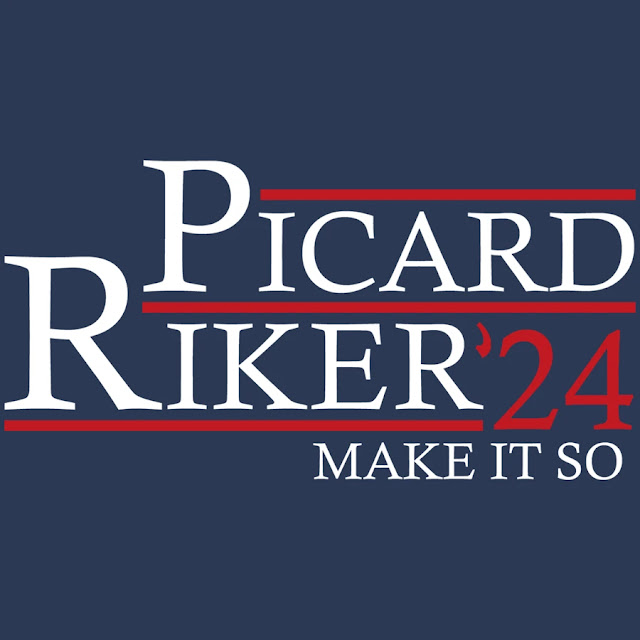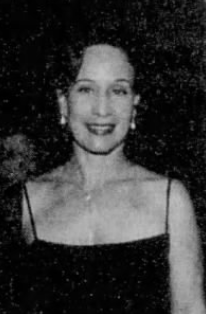Jennifer Joan Wilner, November 11, 1970 (Washington, D.C.) -
VP candidate for Independent Democrat (1992)
Running mate with nominee: Russell Minos Baptiste Hirshon (b. 1961)
Popular vote: ? (0.00%)
Electoral vote: 0/538
The campaign:
Russell Hirshon, a performance artist and bartender in the region of the nation's capital, began his perennial candidacy for DC Mayor and/or US President with instant press coverage. His method of electioneering was to perform flamboyant visual stunts to attract attention. In 1990 he paraded around Washington, D.C. with a flag wrapped around his waist while carrying a chain saw apparently making an environmental statement regarding old growth forests. In another caper he was suspended from a ceiling with live fish and in yet another he was a giant ice cream sundae.
For the 1992 national election he formed the Committee to Put Russell Hirshon in the Big House. His motive? "I want people to vote, to participate. If they don't vote, I might win. Maybe that'll scare them." A poster with Hirshon adorned in a loud suit and standing in a cornfield declared, "Not all presidential candidates are crazy. Just one. Russell Hirshon for President 1992."
In a Jan. 1992 report, Hirshon told the press, "You get looked upon as if you're kind of crazy. Now I'm one of the people I used to laugh at." The candidate managed to put together at least a couple 30-second TV spots that aired on local cable access. The ads included a shot of him sitting on a toilet in public, and he gave out his personal telephone number if voters wanted to ask questions.
Hirshon enjoyed some unplanned publicity in Jan. 1992 when the Bill Clinton campaign held a fund-raising event at the restaurant where he worked. Clinton's people asked that Hirshon not be present at that time. Hirshon responded, "I'm more than capable of being crazy but it's not like I'm a complete psycho."
In 1996 Hirshon filed as an Independent with the FEC under the banner of "Russell Hirshon's Committee of Thugs." He proposed settling the Bosnian wars by holding a huge party with a large open bar. In addition he promised to "blow up the Energizer bunny once and for all." In 2016 he again filed as an Independent using the organization name "Russell Hirshon's Committee to Save America" and used the slogan "Make America Sane Again."
Hirshon's website indicated he was also running for President in 2000 and 2004.
In 2016 his campaign website included this autobiography--
I still believe in a place called hopeful
Russell Hirshon is a Performance Artist/politician who feels the most important aspect of this campaign is making a least one good thing happen from all of the insanity. With two candidates who are as different as possible, we don’t need the kind of money that has been spent to determine who to vote for. Instead we should donate to charitable organizations rather than political campaigns.
As a registered Independent candidate for President, Russell’s mission is to ask as many people as possible to give to a better cause. This means asking ourselves how we can all give to make our world a better place and it starts with us.
A History of Insanity
They say great leaders are born but I beg to differ. I believe great leaders come from a massive ego coupled with an insatiable demand for attention, acceptance and power. Oh, there is the rare occasion where someone is actually dedicated to hope and change but it is rare and fleeting as the other megalomaniacals manage to arrest any dreamers hope.
Russell Hirshon is the least qualified individual for President.
That being said here are some things to consider:
Russell does not want your vote
Russell does not want your money
Russell Hirshon likes to ride his bike whenever possible and enjoys the wind blowing in his face.
Russell believes that all Americans should get a Master’s Degree from the School of Hard Knocks.
Russell is waiting for an interview with Megyn Kelly, preferably at a nice restaurant and where Fox picks up the tab
Russell likes Pina Coladas.
In all of Hirshon's campaigning throughout the years the only evidence I found thus far of any Vice-Presidential nominee is from a photo published in the Philadelphia Inquirer, Aug. 19, 1992. On the grounds outside the Republican convention in Houston, Hirshon is pictured sitting on a toilet, wearing a patriotic clown suit and reading the National Review. The caption includes: "Running mate Jennifer Wilner is in the background."
Wilner was actually identified as Hirshon's campaign manager in other sources. In the 2016 campaign she was called the campaign's press secretary. A mock investigative 2016 report was posted by Hirshon on Youtube, "Our campaign was rocked by allegations of a possible relationship between the candidate and his press secretary earlier today as an ABC (Australian Broadcasting Corporation) reporter slips in the 'gotcha' question to our press secretary, Jennifer Wilner. Luckily the interview was abruptly stopped and the reporter escorted out of our campaign office. Our statement at this time is the following: 'We are not aware that anything improper has occurred at this time between Russell Hirshon and the press secretary and as far as we know, no text messages exist to indicate the contrary.'"
In 1992 both Hirshon and Wilner were under the Constitutionally mandated age of 35 to hold office.
Election history: none
Other occupations: communications and public relations
Notes:
Hirshon also ran for Mayor of Washington, D.C. in 1990 and 1994. One of his posters read: "If you want to get screwed, elect a politician. If you want to get served, elect a bartender."
It would seem Jennifer Wilner is aka Jen Hirshon.


















































